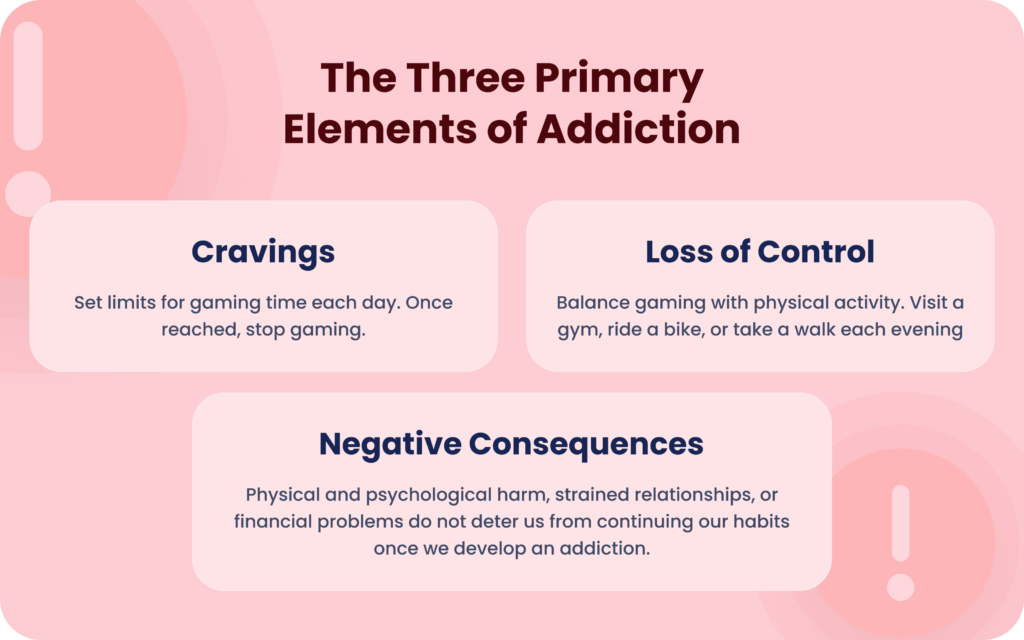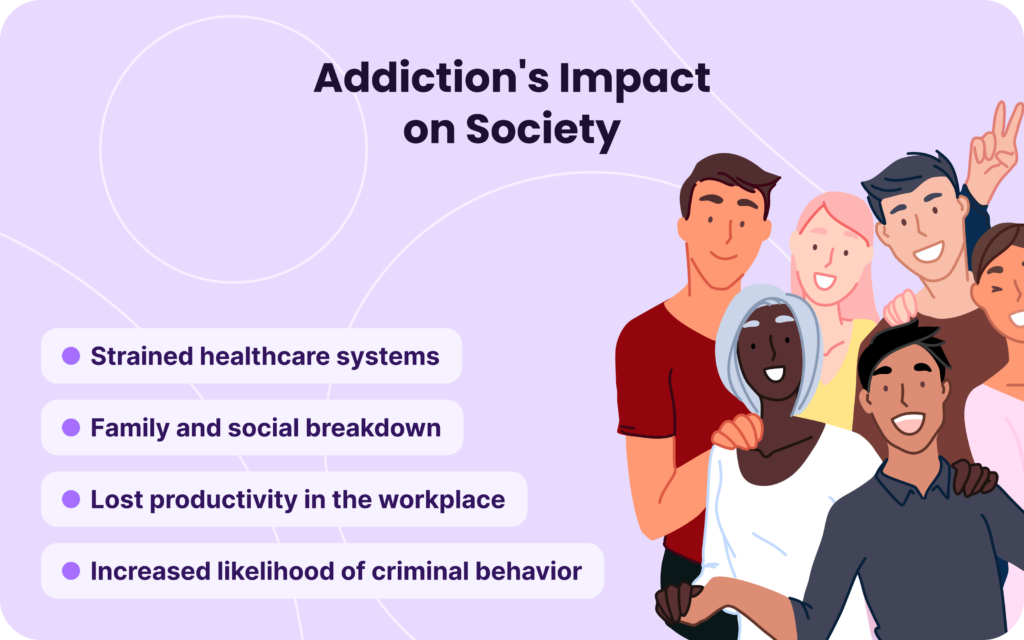Understanding the Foundations of Addiction
Addiction can rear its head in many subtle yet destructive forms. This post dives deep into the foundations of addiction, serving as more than just an educational resource, but a guide for all of us navigating the complex landscape of substance dependence and behavioral addictions.
Unpacking the Term ‘Addiction’
What is addiction? At its core, it’s a complex condition characterized by persistent craving, seeking, and use of a substance or behavior despite negative consequences. The onset of addiction involves changes in the functioning of the brain and body that worsen over time, making it nearly impossible to control the impulse to use.
When we fall victim to addiction, it’s much more than just a lack of willpower. Addiction is a chronic disease that can be devastating, not only for the person with the addiction but also for our families, friends, and the wider community.
The Three Primary Elements of the Foundations of Addiction

- Cravings: An intense biological urge to use the substance or engage in the behavior.
- Loss of Control: The inability to limit intake or regulate behavior in spite of the desire to stop.
- Continuing Use Despite Negative Consequences: Physical and psychological harm, strained relationships, or financial problems do not deter us from continuing our habits once we develop an addiction.
Addictive Substances and Behaviors
Substance Addictions
The most common addictions are those to substances, which alter the way the brain works:
- Alcohol
- Tobacco
- Opioids
- Stimulants
- Sedatives
- Hallucinogens
- Cannabis
These substances are addictive due to their effects on our brain’s reward system. They cause feelings of pleasure that we wish to re-experience, leading to dependency.
Behavioral Addictions
Addiction isn’t limited to substances; it can also manifest as a compulsive and dysfunctional relationship with certain behaviors:
- Gambling
- Food
- Sex
- Internet
- Gaming
- Exercise
Each of these behaviors can also trigger our brain’s reward system, releasing a chemical called dopamine that makes us feel good. When we repeatedly engage in a behavior, dopamine keeps us coming back for more. Eventually, this leads to an addiction and reduces our ability to function.
Addiction Through the Ages
Ancient and Medieval Views on Addiction
Historically, addiction was often seen as a moral failing or a punishment. Treatments ranged from public humiliation to exorcism. However, as our understanding of the brain and behavior evolved, so did our approach to addiction.
Advancing the Foundations of Addiction: The Modern Understanding
The 20th century saw addiction recognized as a disease. The introduction of Alcoholics Anonymous in 1935 and other addiction support groups began to popularize the notion that we should treat addiction with compulsion and understanding, not scorn.
This shift in mindset paved the way for more scientific research into addictive behaviors, culminating in the classification of addiction as a mental disorder in the Diagnostic and Statistical Manual of Mental Disorders (DSM-5).
Addiction’s Impact on Society

Addiction is a public health issue that affects millions worldwide. It leads to a slew of societal concerns, including:
- Increased likelihood of criminal behavior
- Strained healthcare systems
- Family and social breakdown
- Lost productivity in the workplace
These impacts come with a hefty financial burden, with nations spending significant portions of their budgets on substance abuse and addiction-related problems.
Addressing Addiction: Treatment and Recovery
Recovery is Possible
It’s crucial to highlight that recovery from addiction is a reality for millions of people worldwide. It often involves a combination of medication-assisted treatment, counseling, and healthy lifestyle changes.
Overcoming Stigma
Stigma remains a formidable barrier to treatment and recovery for many people with addiction. Education and awareness are essential in combating these preconceptions and ensuring that we all receive the support we need.
Primary Forms of Treatment
Behavioral Therapies
Behavioral therapies, like Cognitive-Behavioral Therapy and Motivational Interviewing, are evidence-based approaches that help us modify our attitudes and behaviors related to substance abuse.
Medication-Assisted Treatment
Medical interventions can be critical in re-establishing balance for those of us struggling with substance abuse. Medications like methadone, buprenorphine, and naltrexone have shown effectiveness in reducing withdrawal symptoms and cravings.
Support Groups
Groups like Alcoholics Anonymous and Narcotics Anonymous provide ongoing support and fellowship in the recovery process, employing a 12-step program as a foundation for sobriety.
The Power of Prevention
Prevention is a key weapon in our fight against addiction. Effective interventions early on can prevent many of the negative effects addiction can have on our young people, families, and communities. Key prevention tactics include education, community programs, and policy changes.
Looking to the Future
With advancements in neuroscience and public health, there’s hope for more effective treatments and an even deeper understanding of how to combat addiction. The biotechnological possibilities hold the promise of innovative approaches. Additionally, societal shifts can destigmatize the conversation around addiction and pave the way for more open and supportive dialogue.
Understanding the foundations of addiction is not just beneficial; it’s crucial. Whether you’re a concerned parent, navigating college life, or a young professional in the workplace, the knowledge you gain can not only empower you to make informed decisions that safeguard your well-being but also motivate you to serve as an advocate for those facing addiction. With empathy, education, and collective action, we can create a world where addiction is not a life sentence, but a challenge that can be overcome.
- Advertisement
Online Addiction Counseling
Get professional help from an online addiction and mental health counselor from BetterHelp. Start receiving support via phone, video, or live-chat.

- Personalized Matching Process
- Easy Online Scheduling
- 30,000+ Licensed Therapists
We are an affiliate partner with BetterHelp and may receive advertising fees through BetterHelp links


